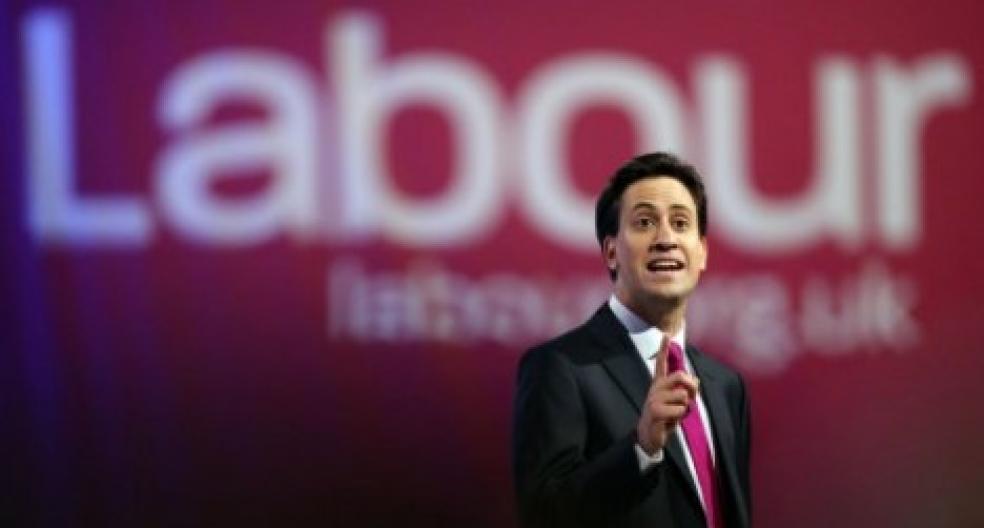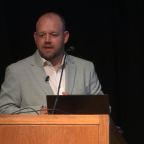
"Britain can do better than this": Miliband stakes his claim
In a conference speech that was rapturously received by the Labour faithful but that may still leave questions over his leadership qualities and public belief in him as a prime minister in waiting, Ed Miliband confidently spoke for over an hour in Brighton on Tuesday (24 September 2013).
Among a number of key policy announcements, Mr Miliband pledged to freeze energy prices for customers until 2017. Describing the proposal, he said:
"Your bills will be frozen, benefitting millions of families and millions of businesses. That is what I mean by a government that fights for you. That's what I mean when I say: Britain can do better than this."
The Labour leader repeated the phrase "Britain can do better than this" throughout his speech, attempting to set out his party's economic direction and distancing himself from what he called David Cameron's "race to the bottom".
He made a few characteristic self-deprecating comments, and said he "understood why people voted for change at the last election"; but accused the government of presiding over "a recovery for the few."
Mr Miliband repeated a refrain from this year's conference that 38 out of 39 months of David Cameron and George Osborne's stewardship of the economy had seen wages rise more slowly than prices.
Building on his ongoing notion of a One Nation Labour Party, the Labour leader emphasised what he called Britain's "cost of living crisis" - highlighting the divide between wages and prices which he said "isn't an accident of David Cameron's policy - it is David Cameron's policy."
In an audience that included party supporters such as Doreen Lawrence, Steve Coogan and Eddie Izzard, Mr Miliband spoke on a range of issues from party reform and responsible business, to education and the NHS about which he said:
"It is the same old story, we rescue the NHS, they wreck the NHS and we have to rescue it all over again. And that is what the next Labour government will do." He accused the Tory leadership of blaming doctors, nurses and the last Labour government for problems in the NHS, saying: "We know who is responsible - this Prime Minister".
He also said Labour would take a lead in challenging perceptions of mental health; tackling issues of care for the elderly and stressing prevention, calling for a "truly integrated NHS".
Among the key policy announcements were:
- a 20-month price freeze to 2017 on energy companies and to establish a new industry regulator
- support for small businesses by reversing the rise in their business rates, paid for by reversing the Coalition's planned 1% corporation tax cut for larger companies
- to build 200,000 new homes between 2015 and 2020
- extending the vote to all 16 and 17-year-olds
- ensuring any firm hiring a worker from outside the EU will also have to create an apprenticeship to train the next generation
- ensuring any firm that secures a government contract will also have to put in place an apprenticeship programme
- scrap the so-called 'Bedroom Tax'
- review the national minimum wage with a view to raising it in certain sectors
- guaranteeing breakfast and after school clubs in every primary school
- commitment to carbon reduction by 2030
- a clampdown on "rogue landlords" and "shady" businessmen
- tighter government controls over train companies, fueul suppliers and payday lenders
- a "use it or lose it" approach towards private land owners
In what is generally regarded as an important speech for Mr Miliband whose personal poll ratings have been consistently lower than David Cameron's; the Labour leader aimed to firmly root himself on the side of ordinary working people and families, and advocated an economy built on high skills and wages, as well as Labour becoming the party of small business.
He re-committed his party to a united country, opposing Scottish independence, saying "devolution works. Anticipating next year's Scottish referendum he said: "Let's win the battle for the UK."
Mr Miliband offered a riposte to Tory critics of his leadership, saying:
"If you want a debate about leadership and character - be my guest."
Mr Miliband called for an end to the "divide and rule" of Conservative policy and professed his desire for Labour to become the "people's party once again." He repeated his determination to reform the party's union link, which he called "unique", saying he wanted to turn the current membership of around 200,000 to 500,000 or 600,000 members drawn from among ordinary working people.
Alison Seabeck, MP for Plymouth Moor View and Shadow Minister for Defence Procurement said: “Ed Miliband, in evoking the spirit of 1945 is speaking the language that many people in Plymouth who lived through that period will understand.
"In talking about the link between hard work and economic benefits he is speaking the language that people in Plymouth will understand. And in talking about the need to stand up to the strong rather than simply to bully the weak he is speaking the language people in Plymouth can understand.”
“This really was a speech about the importance of us being one nation. And it was the speech of the potential Prime Minster.”
The Conservative press office said via Twitter: "We certainly are better than this...Ed is suffering from long term memory loss. #SameOldLabour"
The Conservatives main twitter feed added: "Ed Miliband promised 'iron discipline', but gave in to £27.9bn of unfunded commitments. #ShareTheFacts #SameOldLabour"
The Conservative Party hold their annual conference next week.











